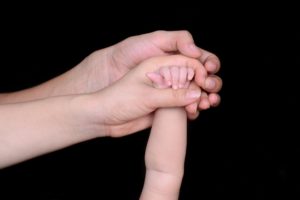Families who have one or more members suffering from PTSD are affected in a number of ways. One of the common defense mechanisms that someone with PTSD uses is to emotionally “numb themselves” so that they can avoid painful feelings. The truth is that it is impossible to numb one aspect of life and not the others. Damping down the emotions of sadness, fear, guilt and anger mean also being unavailable to experience love, joy, happiness, enthusiasm and anticipation of pleasant events. Emotional intimacy may be substituted for mechanical interactions.
This may make family members feel pushed to the side and rejected. The other reason that a sufferer may make family members feel rejected is that they often do not want to talk about the disturbing events they encountered in the line of duty. They may feel that by refusing to talk they are protecting those closest to them from bearing witness to what they see as the harsh realities of life. Regardless of the cause, pushing the family away results in both the traumatized person and their family members feeling isolated and unloved.
Feeling Isolated
Furthermore, feelings of anxiety, depression and worthlessness lead to feelings of inadequacy and guilt, and may lead to detachment and being cut off from other people. They may no longer participate in activities and friendships that used to sustain them before the trauma. When a family member with PTSD withdraws, it becomes difficult for the family to enjoy normal family activities. Childcare and other responsibilities may disproportionately fall on the unaffected spouse. If this scenario follows a long absence where the PTSD sufferer was away, for example on deployment, the resentment may be even more acute. Children who had to adjust to having one parent absent may feel a betrayal when the missing parent suddenly returns, only to disrupt the family functioning.
 The majority of the family’s emotional and other resources may be consumed by focusing on the affected partner’s needs, leading to further resentments of the rest of the family, who begin to feel that their needs don’t matter.
The majority of the family’s emotional and other resources may be consumed by focusing on the affected partner’s needs, leading to further resentments of the rest of the family, who begin to feel that their needs don’t matter.
People with PTSD usually have their sleep disrupted, so they may feel tired and irritable a good portion of the time. They may be angry and lash out in ways that seem excessive and uncalled for. They may try to dull their pain with drugs and alcohol, which leads to its own set of problems.
Anger may be one of the most prevalent emotions that a sufferer of PTSD displays. They may be angry because of injustices they have seen. They may feel that a criminal they worked hard to apprehend might not be convicted because of some technicality. They may be angry because of inhumane acts they have witnessed. Often they are angry because of the way they have been treated by their organizations or insurance companies when it has become apparent that they have had an operational stress injury. Regardless of where the anger comes from, it can be destructive to the harmony of the family.
The police officer or veteran with PTSD may become very controlling of their family members. They may want to protect them from perceived threats and dangers. They may have developed such a lowered self-esteem that they feel that it is just a matter of time before their spouse leaves them for someone else.
Over a period of time, these problems with family and friends can severely erode trust and intimacy. Eventually, it may become too much for those close to the individual. Following trauma, the likelihood of separation and divorce is considerably increased.
The answer to these problems is begins with good information. Usually it is not helpful to try to confront the suffering family member with the intention to perform an “intervention” as this may just cause an inflammatory reaction.
Gaining Insight
Firstly, it is important to understand and acknowledge what exactly is happening here. Having some insight into the experience and vantage point of each family member can be truly enlightening. A skilled therapist who specializes in PTSD family systems therapy can help guide the way through the work that needs to be done.
The afflicted family member may benefit from some individual treatment that can move them into a position of positive growth while simultaneously addressing the family dynamics.
 Thankfully, there is new research leading to new effective programs for the treatment of PTSD.
Thankfully, there is new research leading to new effective programs for the treatment of PTSD.
So many families have come forward to our organization with questions and wishes to support their loved ones through the fallout of PTSD. Please visit the link below for a list of tools that could help you and your loved ones:
http://www.ptsd.va.gov/public/family/helping-family-member.asp
